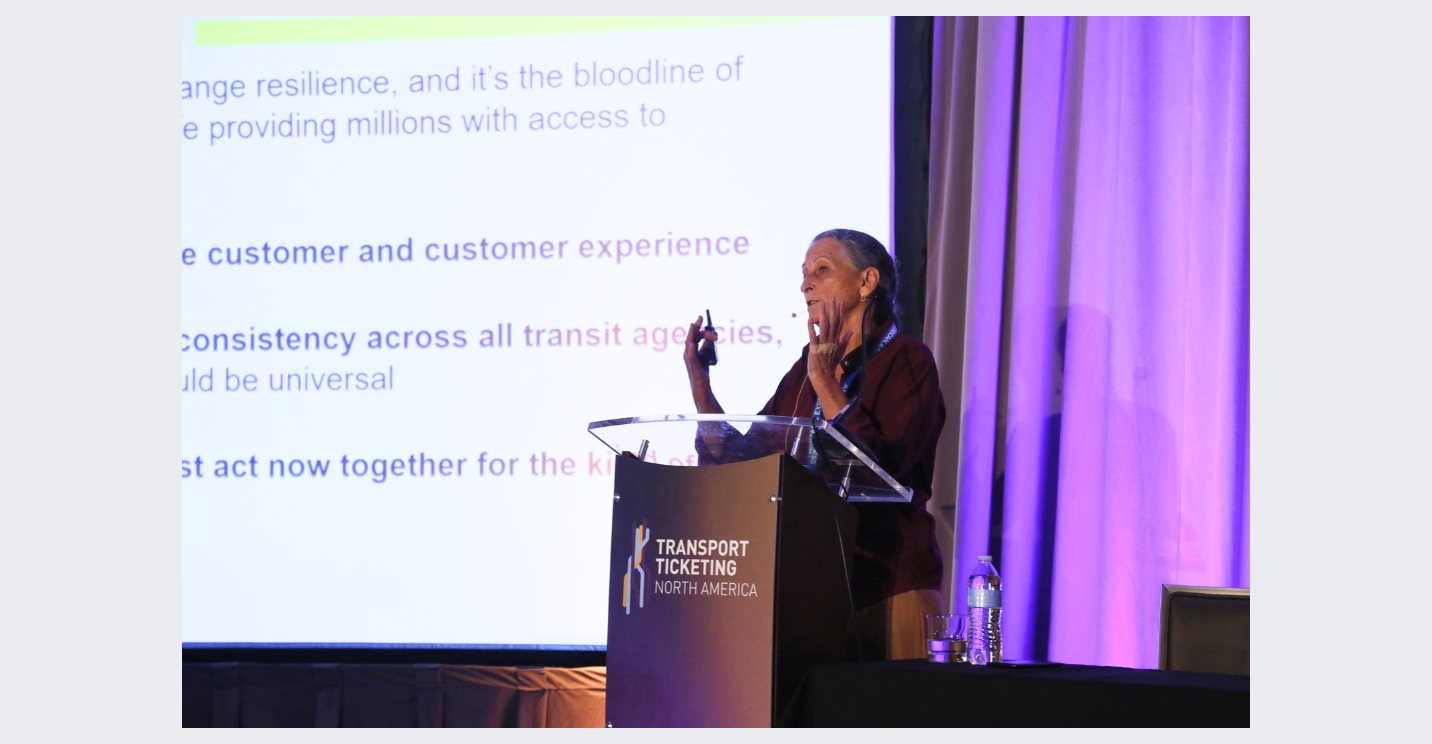Click on the buttons below to access the presentation slides from this year's conference. Please note that we can only provide access to the presentations that we've been given permission to share.



Explore how emerging technologies like contactless payments, mobile ticketing and digital wallets are reshaping transit ticketing systems
How can ticketing and fare policy be used to help meet agency or operator strategic objectives?
How do we optimise ROI in ticketing?
What substantial technological advancements will be applied to ticketing in the next 5 years and when will they be deployed in the field? Discuss the potential of AI-driven algorithms and data analytics
The Ventra Program has been at the cutting edge of fare collection innovation since 2013, from being one of the first account-based systems in the country allowing open payments, to a partnership with Apple and Google allowing you to tap your cell phone to pay for transit via the Ventra Mobile App and Digital Wallets. Now, Ventra is in the design and build phase of a project that will move the entire system to the cloud and enable even more convenience for Chicago transit riders. We will present a timeline to walk though the evolution of Ventra and into the future leveraging partnerships and innovation.
This year the CTA is installing new fareboxes on over 1,800 buses that will be integrated with other bus systems for more efficient operations. In parallel, the agency we will be piloting new Ventra fare equipment on buses and at rail stations to upgrade card readers, vending machines, and retail devices. The collaboration and logistics of managing these projects, in tandem with other agency driven objectives, will be discussed.
Discuss how agencies can maximize the benefits of an ABT solution, and improve the passenger experience, without sacrificing key features that customers and staff have come to rely on.
Address the complexities and hurdles that agencies and operators face when transitioning to ABT systems, including technical, financial and operational challenges.
Examine the role of both closed-loop and open-loop payment options in modern ABT solutions
Identify key considerations in developing and executing a successful ABT transition strategy with your solution provider.
In May of 2021, Monterey-Salinas Transit became one of the first public transit agencies in the U.S. to roll-out a contactless, open-loop payment system for fare collection. Along the way, the agency encountered global supply chain issues, cellular network challenges, technology leadership changes, and a switch in vendors. Hear Michael discuss these, as well as the lessons learned; and why making such a fundamental change in the way the public can purchase their fares was absolutely worth the effort.
The San Diego Metropolitan Transit System is in the final stages of open payment implementation. This session will explore the lessons learned and next steps.
Open loop is becoming a popular fare-payments option for agencies in North America. But some are not fully aware of what they will need to pay to offer the service.
• Which costs should agencies rolling out open-loop payments be prepared for (and sometimes are not)? Merchant-service fees? Keeping terminals certified? Fraud and chargebacks?
• Regular interchange rates for transit agencies accepting open loop are some of the highest in the world. Should payments networks offer a special interchange rate for transit agencies?
• Do agencies lose an important part of their connection to their customers when they roll out open loop?
• Can agencies trust the financial industry to handle all their fares, or should they hedge their bets with closed loop?
• Most experts believe agencies still need closed loop; does this tend to limit use of open loop to visitors and other occasional riders
Are transit agencies accurately measuring journey fraud/fare evasion and how big an issue is this for transit agencies?
What are the current trends in fare evasion? What is the balance between fraudulent travel and revenue leakage? What are the current approaches to mitigate both?
Discuss how data analytics, AI and other technologies can be leveraged to detect and prevent revenue leakage.
What can agencies do to combat journey fraud/fare evasion better, across all modes of travel?
Discuss how reduced and free fares can make public transportation more accessible to low-income individuals and marginalized communities, potentially increasing ridership among these groups
Debate the long-term financial viability of implementing reduced and free fare programs, considering potential revenue losses and alternative funding sources to support increased ridership. Is fare capping an economically naïve approach?
Explore how fare policies influence commuter behaviour and perceptions of public transportation, examining whether reduced or free fares alone are sufficient to drive significant increases in ridership.
What is the next generation of mobile-based ticketing solutions?
Discuss the best solution for your agency and find out how some of these solutions can be implemented cost-effectively at a benefit for the user
How can small and mid-sized agencies offer mobile ticketing in a modular and cost-effective manner
Identify the key elements of an open architecture solution and the benefit such a solution can provide.
Examine various approaches for achieving an open architecture, including what agencies should be asking of vendors and the effects on system procurement strategy.
Explore best practices and lessons learned in the design, delivery, and validation of open architecture solutions.
Discuss the ways in which the move to an open architecture is changing how vendors and agencies are building and using modern payment solutions.
Open loop payments present an opportunity to engage and educate un/under banked transit riders about digital payment options.
TransLink's first Shared Mobility Pilot underscored the need for simplicity in encouraging Metro Vancouver residents to embrace multi-modal travel over personal vehicles. Building on these insights and in collaboration with the same shared mobility partners, we've now launched RideLink, a pilot app featuring easy bike and carshare registration, booking, and billing, real-time transit and vehicle status, and multi-modal trip planning, with TransLink's Compass Card as the key that unlocks it all. In this session we explore the collaborative effort to extend our card-based Compass system with trusted local companies and deliver sustainable mobility solutions for our rapidly growing and increasingly congested community.
Its been a 3 year journey that started as a small pilot in DuPage county and is now one of the most successful on demand ADA travel programs in the country. Hear how Pace created a same day ADA ride program that allows riders to travel anywhere across the entire ADA service area with a seamless booking and payment process.

Join us to network, learn and connect with senior fare collection and transit professionals next year!
Pre-RegisterShare your story and take to the Transport Ticketing North America stage alongside the most influential smart ticketing leaders and experts.
Think you've got what it takes?